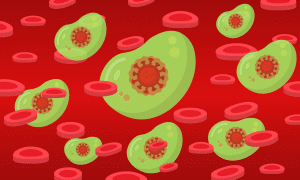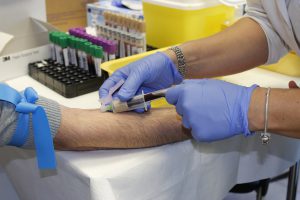Rare disease day is February 28, and so today, we wanted to shed some light on a rare childhood illness, Kawasaki disease. It is estimated that more than 4,200 children in the U.S. are diagnosed with Kawasaki disease each year. The average age of those affected by the disease is under 5 years old, and it occurs most frequently in children of Asian descent. Find out just what this rare condition is all about, its symptoms, when to call the doctor, and how you can treat it – because if left untreated, it can lead to some serious complications.
Kawasaki Disease

Also known as Kawasaki syndrome or mucocutaneous lymph node syndrome, Kawasaki disease is the most common cause of acquired heart disease in children in developed countries. It is an acute multisystem inflammatory disease of blood vessels that affects infants and young children. The average age of those affected is 2 years: around 77% of those affected are younger than 5. Not only that, but boys are 1.5 times more likely than girls to get Kawasaki Disease. And despite what people might think, it is not contagious and cannot be spread to other children or family members.
The exact cause of Kawasaki Disease is not known, but doctors think it is caused by the body’s immune system reacting to an infection.
Symptoms
Kawasaki disease causes inflammation of the blood vessels, and the resulting symptoms can be severe for a child. Symptoms to watch out for include:
- Rash anywhere on the body, but more markedly in the diaper area
- Swollen neck glands
- Swollen hands and feet, with redness on the palms of the hands and soles of the feet
- Red eyes without pus, drainage, or crusting
- Very swollen and cracked lips
- Strawberry tongue with rough, red spots
Additional symptoms include:
- Vomiting
- Diarrhea
- Coughing
- Irritability
When To Call The Doctor

If you notice any of the above symptoms, you should contact your child’s pediatrician. This is especially important if your child has a fever for 4 or more days accompanied by any of those symptoms. It might take several exams to diagnose Kawasaki disease, because there is no specific test for it, but being familiar with the symptoms of the disease can make diagnosing it a little easier. The doctor will take blood to test white and red blood cells, as well as urine samples, and will monitor your child’s heart.
Complications If Left Untreated
If you don’t recognize the fever as Kawasaki disease, and it is left untreated, it could lead to some dire consequences. Your child’s blood vessels could become inflamed, which can be dangerous to your child’s coronary arteries: the inflammation could lead to an aneurysm, which is caused when damaged and weakened blood vessel walls expand.
If the disease is treated within the first 10 days, the risk of aneurysms will be significantly reduced.
Treatment For Kawasaki Disease
If your child is diagnosed with Kawasaki disease, they will be admitted to the hospital, where medication will be given to them through an IV. You can expect to be in the hospital for at least 24 hours after the medication is administered to make sure the fever is completely gone and does not come back. By the 14th day of illness, or after the resolution of the fever, a lower dose of aspirin is typically given for its antiplatelet effect to help prevent blood clots from forming.
In rare cases, coronary artery bypass surgery or heart transplantation may be recommended for individuals with severe heart involvement.
This condition, depending on the type, can end up having severe symptoms that require surgery, constant testing, mobility assistance, and/or physical therapy, so if your child has had Kawasaki disease, it’s very important that you have good health insurance to help pay for all of these medical expenses. EZ.insure will work with you to find an affordable plan that meets your medical needs, so you have one less thing to worry about while providing care to your child. To get free quotes on all available plans in your area, simply enter your zip code in the bar above, or to speak to an agent, call 888-350-1890. No obligation.